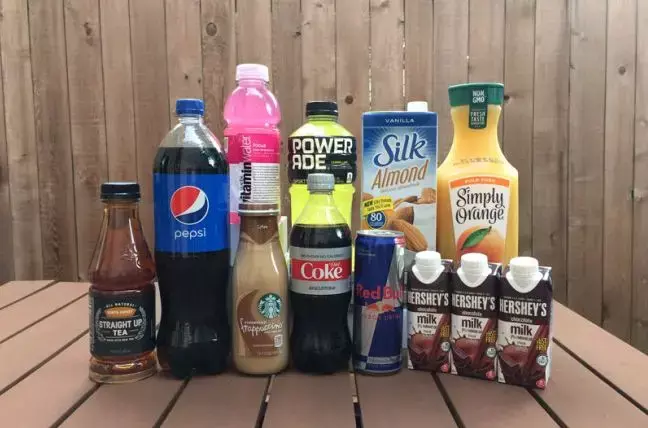- Home
- Medical news & Guidelines
- Anesthesiology
- Cardiology and CTVS
- Critical Care
- Dentistry
- Dermatology
- Diabetes and Endocrinology
- ENT
- Gastroenterology
- Medicine
- Nephrology
- Neurology
- Obstretics-Gynaecology
- Oncology
- Ophthalmology
- Orthopaedics
- Pediatrics-Neonatology
- Psychiatry
- Pulmonology
- Radiology
- Surgery
- Urology
- Laboratory Medicine
- Diet
- Nursing
- Paramedical
- Physiotherapy
- Health news
- Fact Check
- Bone Health Fact Check
- Brain Health Fact Check
- Cancer Related Fact Check
- Child Care Fact Check
- Dental and oral health fact check
- Diabetes and metabolic health fact check
- Diet and Nutrition Fact Check
- Eye and ENT Care Fact Check
- Fitness fact check
- Gut health fact check
- Heart health fact check
- Kidney health fact check
- Medical education fact check
- Men's health fact check
- Respiratory fact check
- Skin and hair care fact check
- Vaccine and Immunization fact check
- Women's health fact check
- AYUSH
- State News
- Andaman and Nicobar Islands
- Andhra Pradesh
- Arunachal Pradesh
- Assam
- Bihar
- Chandigarh
- Chattisgarh
- Dadra and Nagar Haveli
- Daman and Diu
- Delhi
- Goa
- Gujarat
- Haryana
- Himachal Pradesh
- Jammu & Kashmir
- Jharkhand
- Karnataka
- Kerala
- Ladakh
- Lakshadweep
- Madhya Pradesh
- Maharashtra
- Manipur
- Meghalaya
- Mizoram
- Nagaland
- Odisha
- Puducherry
- Punjab
- Rajasthan
- Sikkim
- Tamil Nadu
- Telangana
- Tripura
- Uttar Pradesh
- Uttrakhand
- West Bengal
- Medical Education
- Industry
Artificially sweetened beverages linked to higher CVD risk, finds study

Sugary drinks and artificially sweetened beverages are associated with a higher risk of cardiovascular disease , suggesting that it may not be a safe alternative ,reports a new study.the reports have been published in the form of a letter in Journal of the American College of Cardiology.
Sugar-sweetened beverages (SSBs) are the single largest source of added sugar in the US diet.1,2 They include the full spectrum of carbonated and noncarbonated soft drinks, fruit drinks, and sports drinks that contain added caloric sweeteners such as high fructose corn syrup, sucrose, or fruit juice concentrates. In previous epidemiological studies, intake of SSBs has been associated with weight gain and higher risk of type 2 diabetes mellitus, coronary heart disease, and stroke.
ASB were defined as beverages containing non-nutritive sweeteners (NNS). Sugary drinks consisted of all beverages containing ≥5% sugar (i.e., soft drinks, syrups, 100% juice, fruit drinks).
All major health events reported by participants were validated based on their medical records. Data were also linked to the national health insurance system (SNIIRAM) and to the French national mortality registry (CépiDC).
The present study focused on first incident cases of stroke, transient ischemic attack, myocardial infarction, acute coronary syndrome, and angioplasty. For each type of beverage, 3 categories of intake were defined: nonconsumers, low consumers, and high consumers (separated by sex-specific median among consumers).
In the study design,104,760 participants were included (mean baseline age 42.9 ± 14.6 years). In results indicated that in this cohort, higher intakes of sugary drinks and ASB were associated with a higher risk of CVD, suggesting that ASB might not be a healthy substitute for sugary drinks.
"These data provide additional arguments to fuel the current debate on taxes, labeling, and regulation of sugary drinks and ASB. To establish a causal link, replication in other large-scale prospective cohorts and mechanistic investigations are needed."concluded the team.
For full article, click on the link: Journal 10.1016/j.jacc.2020.08.075Primary source: of the American College of Cardiology
Dr Satabdi Saha (BDS, MDS) is a practicing pediatric dentist with a keen interest in new medical researches and updates. She has completed her BDS from North Bengal Dental College ,Darjeeling. Then she went on to secure an ALL INDIA NEET PG rank and completed her MDS from the first dental college in the country – Dr R. Ahmed Dental College and Hospital. She is currently attached to The Marwari Relief Society Hospital as a consultant along with private practice of 2 years. She has published scientific papers in national and international journals. Her strong passion of sharing knowledge with the medical fraternity has motivated her to be a part of Medical Dialogues.
Dr Kamal Kant Kohli-MBBS, DTCD- a chest specialist with more than 30 years of practice and a flair for writing clinical articles, Dr Kamal Kant Kohli joined Medical Dialogues as a Chief Editor of Medical News. Besides writing articles, as an editor, he proofreads and verifies all the medical content published on Medical Dialogues including those coming from journals, studies,medical conferences,guidelines etc. Email: drkohli@medicaldialogues.in. Contact no. 011-43720751


